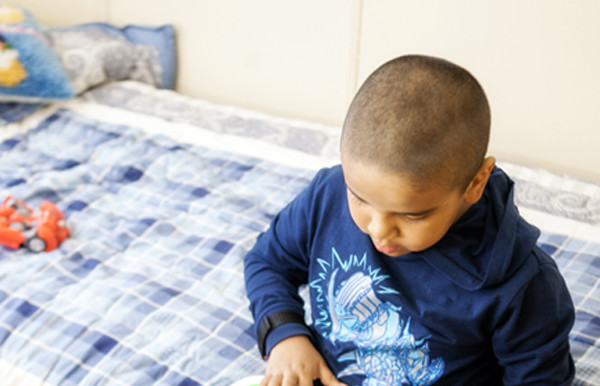In Minnesota, different programs may help pay for transitional services that would help you move to your own place in the community. Most of these programs offer the same types of help — coordination and moving funds. The main difference in how you get this help depends on whether you qualify for Medical Assistance (MA). Keep reading to learn if MA might help you move into your own place.
Note: If you qualify for MA, you might also qualify for one of the programs described next. If you are not sure if you qualify for MA, ask your local county or tribal human services office. If you already know you do not qualify for MA, you can skip to the next section: Paying for Your Move: If You Don’t Have Medical Assistance.
Relocation Service Coordination
If you qualify for MA, one of the programs that helps you plan and coordinate your move is called Relocation Service Coordination (RSC).
According to RSC, an eligible institution is a hospital, nursing home, an Intermediate Care Facility for Persons with Developmental Disabilities (ICF/DD), or a regional treatment center that provides inpatient services to a person currently getting MA. If you are living in an eligible institution, RSC may help you coordinate your move.
You have the right to get RSC services within 20 days of asking for them and can keep getting them for up to 180 days after you move out of an institution.
Contact your local county or tribal human services office. These services are usually provided by the county where the facility you are living in now is located.
Moving Home Minnesota
Moving Home Minnesota helps people on Medical Assistance (MA) move out of institutions and into an approved independent setting, such as your own home or apartment. It helps pay for services that your MA or MA-Waiver benefits will not pay for.
Moving Home Minnesota makes sure that your transition to living in the community goes smoothly by helping with transitional planning, moving expenses, and services once you have moved.
Call 1-651-431-3951 and read the HB101 article.
Paying for Your Move if You Qualify for an MA-Waiver Program
Besides helping with activities of daily living, MA-Waivers can help pay for transitional services for people who want to move out of a facility and into the community. Here are some of the MA-Waiver programs that pay for help with your move.
Minnesota’s MA-Waiver programs are a part of Medical Assistance (MA). They provide ongoing services so that people who need long-term care can live in the community rather than in institutions. Common MA-Waiver services include home-delivered meals, help with cleaning, and transportation.
You must qualify for MA because of your disability or qualify for Medical Assistance for Employed Persons with Disabilities (MA-EPD) to enroll in an MA-Waiver program.
To learn more about MA-Waivers and find out if you are eligible, read the HB101 article on MA-Waivers.
Transitional Services
If you are moving from a licensed setting (certain hospitals, Adult Foster Care, a nursing home, or Intermediate Care Facility for Persons with Developmental Disabilities) to your own home in the community and qualify for an MA-Waiver, Transitional Services can help you pay for many of the expenses related to your move and setting up your new home, including:
- Rental/lease deposits
- Furniture that is necessary to live in your home
- Fees for setting up utilities, like gas and electricity
- Costs of finding a home to move to
- Basic household and personal items
- Window coverings
- One-time treatment of the home for pests or allergens
This program does not pay for items that are not necessary, or for ongoing expenses, like rent, food, bills, or clothes. It is just to help get you set up in your new place.
Contact your local county or tribal human services office.
Housing Access Services
Housing Access Services is a partnership between The Arc of Minnesota and the Minnesota Department of Human Services (DHS). It helps you find a home and pay for the items you need to set up a household. If you are eligible for an MA-Waiver program or the Community First Services and Supports (CFSS) program (even if you don’t actually get these services), you are eligible for Housing Access Services.
Housing Access Services pays for many of the same things as the Transitional Services program mentioned earlier, but with Housing Access Services, you can be moving out of any setting (not just a licensed facility) and into a more independent setting.
Housing Access Services helps with:
- Moving to a place of your own
- A support person to go with you to look for housing
- Applications and lease agreements when you rent a place
- Public housing applications
- Figuring out a budget for your house
- Finding furniture and other items for your new home
- Paying for application fees and rental deposits
Visit The Arc of Minnesota’s website or call them at 1-952-915-3632.




Give Feedback